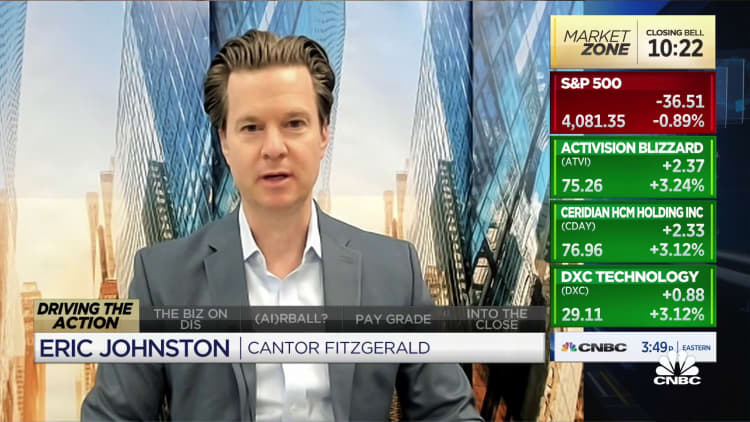A recent Morning Consult survey recently found almost half of adults — 46% — think the U.S. is already in a recession.
Such a downturn — traditionally defined as two consecutive quarters of declining economic growth — hasn't actually happened yet.
But economists say a recession could be on the way.
New government data released Tuesday shows that above-average inflation continues to be a challenge for the U.S. economy. The consumer price index, which measures a basket of goods and services, rose 0.5% in January and was up 6.4% versus a year ago. Both measures were somewhat higher than economists had expected.
More from Personal Finance:
Almost half of Americans think we're already in a recession
It's still a good time to get a job, career experts say
If you want higher pay, your chances may be better now
"The big question is, can the Fed dampen activity and demand enough to dampen inflation further without pushing us into a recession?" said Brett House, professor of professional practice in economics at Columbia Business School.
Why periods of disinflation often lead to a recession
The higher-than-expected January inflation data prompted some concerns that disinflation, defined as slowing inflation rates, had been put on pause.
"We are still on the path to lower inflation rates," House said.
While headline inflation will continue to come down, it's "not a straight line," he said.
The Federal Reserve is expected to continue to raise interest rates. The difficulty the central bank faces is whether it can execute a soft landing.

"There are far more cases where disinflation brought about by interest rate increases by the Fed have led to a recession than not," House said.
Economists said they still expect a recession following the new January inflation data. The question is just how severe a downturn may be.
"We are still expecting a recession for now, but it is going to be very tricky," Eugenio Aleman, chief economist at Raymond James, said Tuesday following the release of the January CPI data.
The service sector of the economy needs to slow down further, Aleman noted. But the Federal Reserve lacks tools to prompt that area to cool off, he said.
The door to a soft landing is rapidly closing.Peter C. Earleeconomist at the American Institute for Economic Research
By raising interest rates, the Federal Reserve is also trying to make it more attractive for consumers to save rather than spend, according to Aleman. However, the challenge is reversing spending patterns that have been in place for the past 20 years, he said.
The new CPI data prompted Peter C. Earle, an economist at the American Institute for Economic Research, to say he thought a recession was more likely.
The new data shows slowing disinflation, he said, while the Federal Reserve will probably have to hold rates higher for longer. Moreover, slowing economic growth may accelerate.
"The door to a soft landing is rapidly closing," Earle said.
A 'Goldilocks scenario' could bring a soft landing
There is still hope, however, that the central bank may execute a so-called "soft landing," according to House.
The unemployment rate is at 3.4%, the lowest since May 1969, according to the latest jobs report. Meanwhile, there are a record number of job openings, which increased to 11 million as of December.
The hope is that there will be an elimination of those open vacancies rather than an elimination of existing jobs, House said.
"We have some evidence that we're simply seeing some of those job postings get pulled out, rather than people being laid off," notwithstanding cuts in the technology sector, House said.
There is a big pool of unfilled jobs that could simply be pulled out of the labor market without putting people out of work, he said.
"That would be the kind of Goldilocks scenario that could get us to a soft landing," House said.


